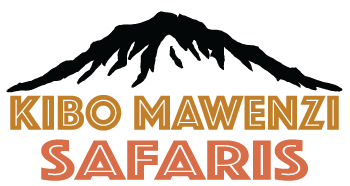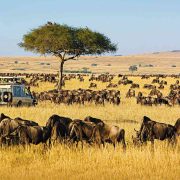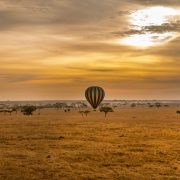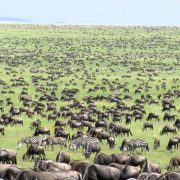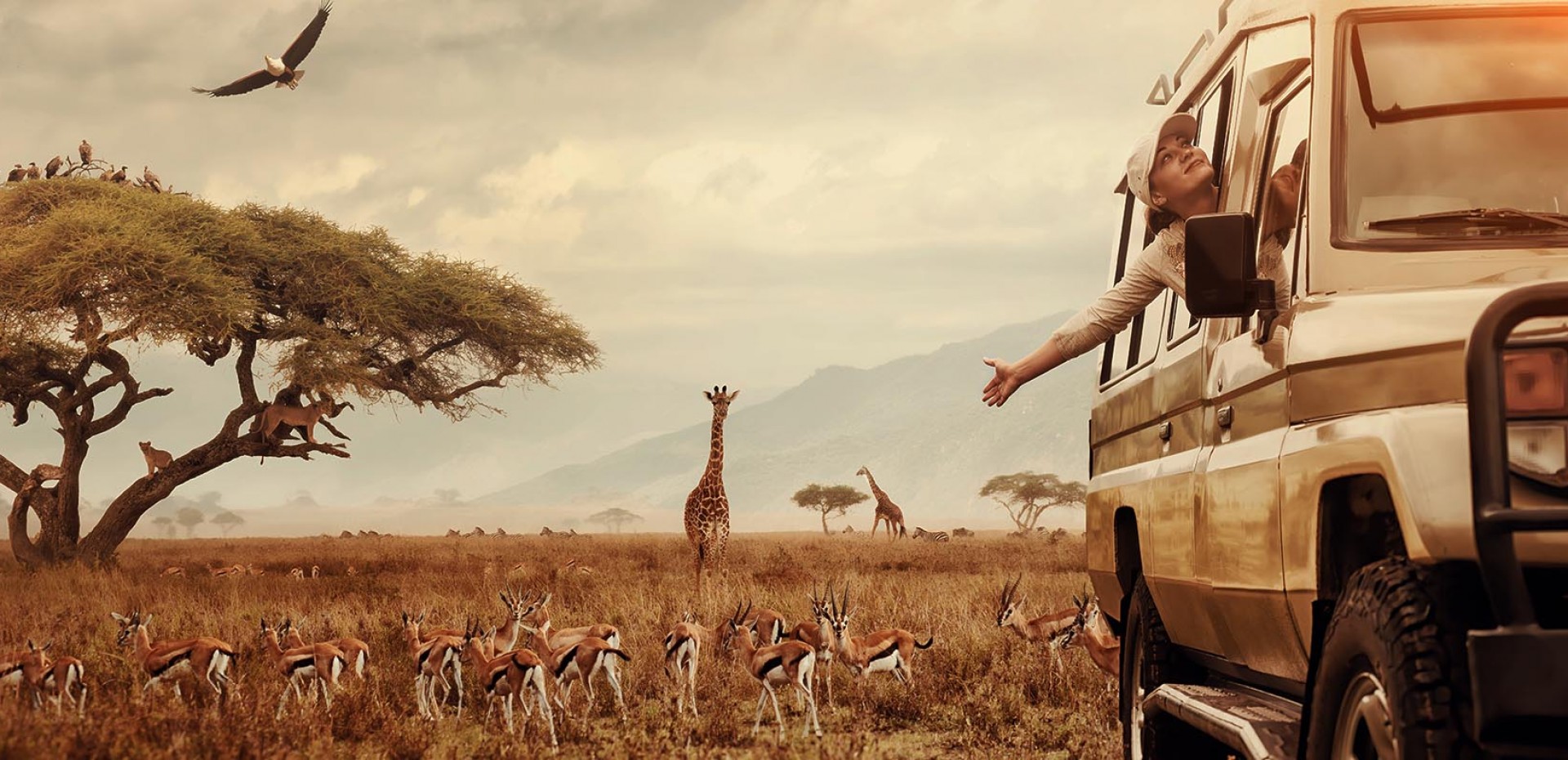
What Does An African Safari Cost?
- Briefly introduce the concept of an African safari and why it is a popular vacation destination
- Length of the safari
- Destination (e.g. Tanzania, South Africa, Kenya)
- Type of accommodation (e.g. luxury lodge, tented camp)
- Type of transportation (e.g. private vehicle, group tour)
- Activities included (e.g. game drives, walking safaris, and cultural experiences)
- Provide a range of costs based on the factors listed above
- Mention any additional costs to consider (e.g. flights, visas, travel insurance)
- Suggestions for finding affordable safari options (e.g. booking during the shoulder season, choosing a more economical destination)
- Mention the importance of researching and comparing prices from different tour operators
- Recap the main points of the post
- Encourage readers to consider an African safari for their next vacation, highlighting the unique experiences and memories that it can provide.
=> Introduction:
An African safari is a trip to see and observe wild animals in their natural habitat. It is a popular vacation destination because it allows people to experience the beauty and diversity of Africa's landscapes and wildlife, and to learn more about conservation efforts. Many people also find it to be a once-in-a-lifetime opportunity to see animals such as lions, elephants, and gorillas up close. In addition, an African safari can provide a chance to relax and disconnect from daily life, as it often involves staying in remote and picturesque locations.=> Factors that affect the cost of an African safari
The length of an African safari can vary greatly, from a few days to several weeks. The longer the safari, the more it will typically cost. The destination is another important factor that can affect the cost of an African safari. Different countries and regions within Africa have different costs of living and varying levels of tourism infrastructure, which can impact the price of safari packages. For example, a safari in Tanzania may be more expensive than one in a less well-known destination. The type of accommodation can also impact the cost of an African safari. Luxury lodges or hotels will generally be more expensive than tented camps or budget-friendly accommodation options. The type of transportation used during the safari can also affect the cost. Private vehicle rentals or chartered flights will be more expensive than group tours or shared transportation options. Finally, the activities included in the safari package can impact the cost. Game drives, walking safaris, and cultural experiences such as visits to local villages or schools will all add to the overall cost of the safari.=> Average cost of an African safari
The cost of an African safari can vary greatly depending on the factors mentioned above. A short, budget-friendly safari in a less well-known destination, staying in a tented camp and using group transportation, with few included activities, could cost as little as $100 per day. On the other hand, a longer, luxury safari in a popular destination such as Tanzania or South Africa, staying in a 5-star lodge and using private transportation, with many included activities and excursions, could cost upwards of $500 or more per day. In addition to the cost of the safari itself, there are several additional costs to consider when planning an African safari. These may include:- Flights: Depending on where you are traveling from, flights to Africa can be expensive. Consider looking for deals or using frequent flyer miles to offset the cost.
- Visas: Some African countries require a visa for entry, which can cost anywhere from $50 to over $200, depending on the country and your nationality.
- Travel insurance: It is a good idea to purchase travel insurance for any international trip, including an African safari. This can protect you in the event of unexpected cancellations, medical emergencies, or other unforeseen circumstances.
- Tips and gratuities: It is customary to tip your guide and other service staff on an African safari. Be sure to budget for this in your overall trip costs.
- Souvenirs and additional activities: You may want to bring back souvenirs or participate in additional activities while on safaris, such as hot air balloon rides or scuba diving. These will add to the overall cost of your trip.
=> Tips for budget-conscious travelers
There are several ways to find affordable safari options:- Book during the shoulder season: Prices for safaris are often lower during the shoulder season, which is typically the period between the peak tourist season and the off-peak season. This can vary depending on the destination but is often around April, May, September, and October.
- Choose a less well-known destination: As mentioned earlier, some African destinations are more expensive than others due to their popularity and higher levels of tourism infrastructure. Consider opting for a less well-known destination, which can offer a similar safari experience at a lower cost.
- Consider different types of accommodation: Luxury lodges and hotels will generally be more expensive than tented camps or budget-friendly options. If you are willing to forego some of the amenities and comforts of a luxury lodge, you can save money by choosing a more basic accommodation option.
- Research and compare prices: It is important to do your research and compare prices from different tour operators and safari packages. Don't be afraid to negotiate or ask for a discount. It is also a good idea to read reviews from previous travelers to get an idea of the quality of the tour operator and the safari experience they offer.
=> Conclusion
In summary, an African safari is a unique and exciting vacation destination that allows you to experience the beauty and diversity of Africa's landscapes and wildlife. The cost of an African safari can vary greatly depending on the length of the trip, the destination, the type of accommodation and transportation, and the activities included. On average, safaris can cost anywhere from $100 to over $500 per day, depending on the level of luxury and inclusions.
There are ways to find more affordable safari options, such as booking during the shoulder season, choosing a less well-known destination, and opting for more basic accommodation. It is also important to research and compares prices from different tour operators and to consider additional costs such as flights, visas, and travel insurance.
While an African safari may not be the most budget-friendly vacation option, it is an unforgettable experience that can provide unique and lasting memories. From seeing majestic animals in their natural habitat to learning about conservation efforts and local cultures, an African safari offers something for everyone. So if you're looking for an adventure of a lifetime, consider planning an African safari for your next vacation. You won't be disappointed!
